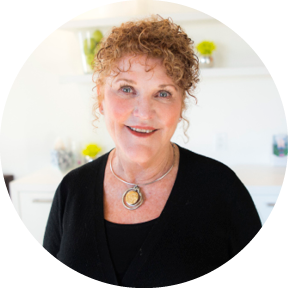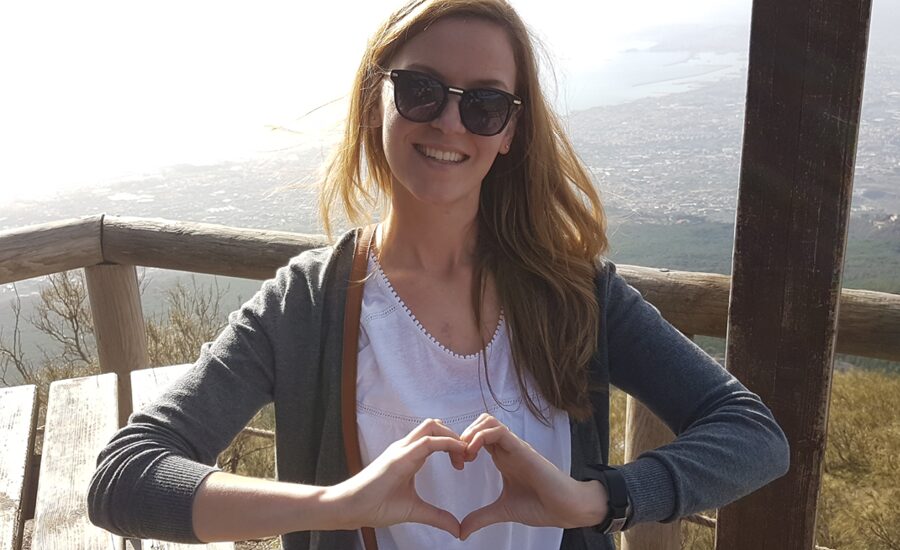Part 2 of 3.
One of our INLIV teammates, Jennifer Michaud, shares her heart story in this three-part series. Read Part 1 here.
I was back at the cardiologist’s office in March of 2016. Before we went over my test results, my doctor asked me if I had anything I wanted to say, anything I had noticed health-wise that I wanted to bring up. I was about to say my usual “Nope, nothing” but stopped myself – I was suddenly hit with the urge to tell him about an odd “symptom” I had recently been experiencing; I use quotes around the word symptom because I wouldn’t have known at the time what it was a symptom of, and had only mentioned it because I figured it couldn’t hurt.
For the past few months I had felt brief periods of my heart racing, for no reason. I would be sitting at my desk at work, or doing a presentation, or at rehearsal for a play, and my heart would start racing like I had run up a flight of stairs – then in a few minutes would settle and I would feel as calm as a cucumber again. I mentioned this to my doctor, believing it would be nothing; I was so unfazed about it that I hadn’t even mentioned it to my husband or my family.
I don’t remember the exact moment it happened, but I know that my cardiologist told me that I would require open-heart surgery.
This is where my memory gets a little fuzzy – looking back I’m pretty sure the news that followed actually sent me into a bit of shock. I don’t remember the exact moment it happened, but I know that my cardiologist told me that I would require open-heart surgery. He and his nurse practitioner spoke with me about my test results and the fact that not only had my valve condition deteriorated severely, but I was also now presenting with symptoms – my racing pulse – and with that they had decided it would be best for my health to have my valve replaced.
They provided me with some informational booklets and advised they would be presenting my case to a panel of cardiologists in Edmonton to determine the best method for replacing my aortic valve. They said they would be speaking to this panel at the end of April, and that although they had not determined the details yet, I should tell my husband and my family that I would require this surgery.
I drove myself home in a daze – not something I would recommend – and waited for my husband to get home. My next memory is of his arrival home, how he saw the booklet announcing “Open-Heart Surgery” left on the kitchen table and looked back at me for an explanation, which I provided by bursting into tears. I don’t remember many more details about that evening – he comforted me, drank a few glasses of wine with me, and held me as I slept.
He saw the booklet announcing “Open-Heart Surgery” left on the kitchen table and looked back at me for an explanation, which I provided by bursting into tears.
We’ve talked extensively about many details of that evening and the following months, and when I asked him about this first night, he told me that he lay awake for what felt like the whole night, turning the news over in his mind:
“I realized in that moment that you told me the news that you needed me to be calm and strong and to not give into the panic and despair I was feeling; I had my parents and my friends to reach out to when I needed an outlet, but I knew that you needed my support through this to be unwavering.”
To his absolute credit, my husband did what he set out to do that first night: he was an endless source of positivity, love, understanding and constant support throughout the entire experience – I have no doubt that my recovery was successful in large part because I had him acting as my coach, my cheerleader and my teammate.
He, along with my parents and family and friends were a true resource for me, and I can only hope that everyone who experiences a health crisis should be so lucky to have such an incredible support system behind them.
After telling my parents and close family members the news, we spent the next month on edge waiting for the call from my cardiologist that would outline next steps. It would have been very easy to slip into a depression during this time, but my husband was a great source of comfort and support. I was also rehearsing for a play, a community theatre musical that kept me busy and my mind distracted.
I received the phone call on April 29 from the cardiac surgeon’s office at Foothills Medical Centre, looking to book me for surgery on May 13 – two weeks later. My response? “Is there any way we can schedule my surgery for the next week? I’m starring in a musical and our final night of performances is May 14. I would hate to let them down with two shows to go.”
My husband laughs when I remind him about that, as did the receptionist for the cardiac surgeon; it seems my reason for asking to postpone was not very common. However, she agreed that one more week wouldn’t hurt since I hadn’t had any worsening of my symptoms nor did I need to be hospitalized prior to the surgery. She proposed the date of Friday, May 20 and I accepted.
We met with my cardiac surgeon in the three weeks leading up to the surgery to discuss options. He was a member of the panel that had agreed that I would need open-heart surgery and had considered the three types of heart valve replacement surgery that I would be eligible for:
- Mechanical Valve
- My valve would be replaced with a mechanical (plastic) valve
- Biological/Bio-prosthetic Valve
- My valve would be replaced with a tissue valve (animal tissue or human donor)
- Ross Procedure
- My valve would be replaced with my own pulmonary valve, and then I would have a biological valve implanted where my pulmonary used to be
The panel had agreed that I would not need to undergo a Ross Procedure surgery, and so it was up to me to decide on a mechanical or a biological valve. In the end I decided on biological; while a mechanical valve would never deteriorate, it would have meant that I would have to be on blood-thinners – likely for the rest of my life. Choosing a biological valve meant that although I will need to undergo surgery again to have it replaced within the next 20 years or so, I will have more time without the requirement of blood thinners. This was important to me, and my husband and my surgeon were supportive.
Choosing a biological valve meant that although I will need to undergo surgery again to have it replaced within the next 20 years or so, I will have more time without the requirement of blood thinners.
The remaining week leading up to my surgery was fairly busy, and I am forever grateful for the many distractions that kept my mind off the inevitable. The play I was in wrapped up on Saturday, I was working at my job until Wednesday, I went for my pre-op appointment at the hospital on Thursday, my parents arrived in town on Thursday night. Friday morning we were back at the hospital for my surgery at 6 am.
When we arrived at the hospital, a nurse walked me through the sign-in process and administrative paperwork. She gave me a paper gown to change into along with an anti-anxiety medication to help calm my nerves, and had me lay on a stretcher in the hall while the operating room was prepped. My husband and parents sat with me for an hour or so and then I was wheeled away to the OR.
I remember some flashes of the operating room they brought me into, the lights and surgical instruments and machines everywhere, and there was a small group of people around me who began prepping me for the procedure. The anesthesiologist inserted an IV into my arm and told me to count down from “100”. Let me tell you, Hollywood does get this detail right – I only made it to “98” before my memory goes blank.
Concerned about your heart health? INLIV can help.

“It is important to be proactive when it comes to your health: seek advice when noting new symptoms and get help early; know your numbers such as blood pressure, BMI, cholesterol levels and be an active participant in your own healthcare.
Our Total Health Management program is an excellent primary care program that can help support your ongoing health needs. We also have a Comprehensive Medical Assessment program that can offers health screening and provides you with a snapshot of your health with recommendations for preventive care.“
– Dr. Wendy Smeltzer, Medical Director at INLIV


